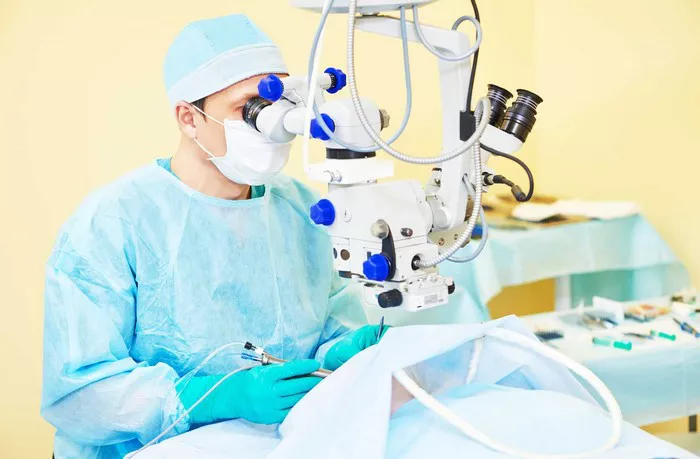Parkersburg, W.Va. (KXII) — West Virginia lawmakers are exploring solutions to the state’s shortage of ophthalmologists by revising occupational licensing regulations. The goal is to facilitate the entry of healthcare professionals from other states into West Virginia.
Legislative Briefing on Occupational Licensing
On September 1, members of the Joint Standing Committee on Government Organization convened at Parkersburg City Hall for a briefing on this issue. Edward Timmons, Director of the Knee Regulatory Research Center at West Virginia University, provided insights into the current state of ophthalmology and optometry in West Virginia.
Expanding Optometrists’ Scope of Practice
Timmons highlighted the disparity between optometrists and ophthalmologists. Optometrists are trained to perform eye exams, diagnose conditions, and recommend treatments, but they do not conduct major surgical procedures. Conversely, ophthalmologists handle significant medical and surgical interventions.
Recent trends show a decline in the number of ophthalmologists nationwide, including in West Virginia, while the number of optometrists remains stable. Timmons noted that this imbalance may be exacerbated by an aging ophthalmologist workforce and fewer new practitioners entering the field.
Current Capabilities and Proposed Changes
In West Virginia, optometrists are authorized to use lasers for diagnostic purposes but not for therapeutic treatments. Neighboring states like Virginia and Kentucky permit optometrists to use lasers for conditions such as post-cataract haze and minor glaucoma treatments. Only Alaska and Oklahoma allow optometrists to perform LASIK surgeries, a procedure used to correct vision issues like nearsightedness.
Timmons cited House Bill 4783, which aimed to expand optometrists’ scope of practice, passing the House of Delegates earlier this year with a significant majority. However, the bill did not advance in the Senate’s Health and Human Resources Committee. The proposal has sparked debate between the West Virginia Association of Optometric Physicians, which supports the expansion, and ophthalmologist groups concerned about patient safety.
Safety and Training Concerns
A recent study reviewed the safety of allowing optometrists to perform certain laser procedures in other states and countries. While only two negative outcomes were reported, Timmons acknowledged the study’s limited scope. He noted that optometrists are increasingly trained in these procedures, with many requiring post-graduate training.
Timmons argued that advancements in technology and training suggest the benefits of expanding optometrists’ authority may outweigh the risks.
Occupational Licensing Reciprocity
Another key topic was occupational licensing reciprocity. West Virginia has one of the highest proportions of workers requiring occupational licenses, ranking eighth among states. However, the state is 33rd in terms of the number of licensed occupations, with 173 compared to states like Texas (199) and Kansas (136).
Timmons pointed out that stringent licensing requirements can hinder business startups and discourage out-of-state professionals from moving to West Virginia. He advocated for universal recognition or reciprocity, noting that 26 states have some form of this practice. States with universal recognition see a 1% increase in employment ratios due to a rise in new workers and residents.
Legislative Efforts and Future Prospects
A 2021 bill to allow the transfer of out-of-state occupational licenses was approved by the House of Delegates and recommended by the Senate Government Organization Committee but did not progress in the Senate Judiciary Committee.
Timmons emphasized the need for a more flexible licensing system to attract skilled professionals and address the healthcare shortages in West Virginia.
This ongoing discussion reflects broader efforts to adapt occupational licensing to meet evolving workforce needs and ensure better access to healthcare services in the state.
Related topics:

